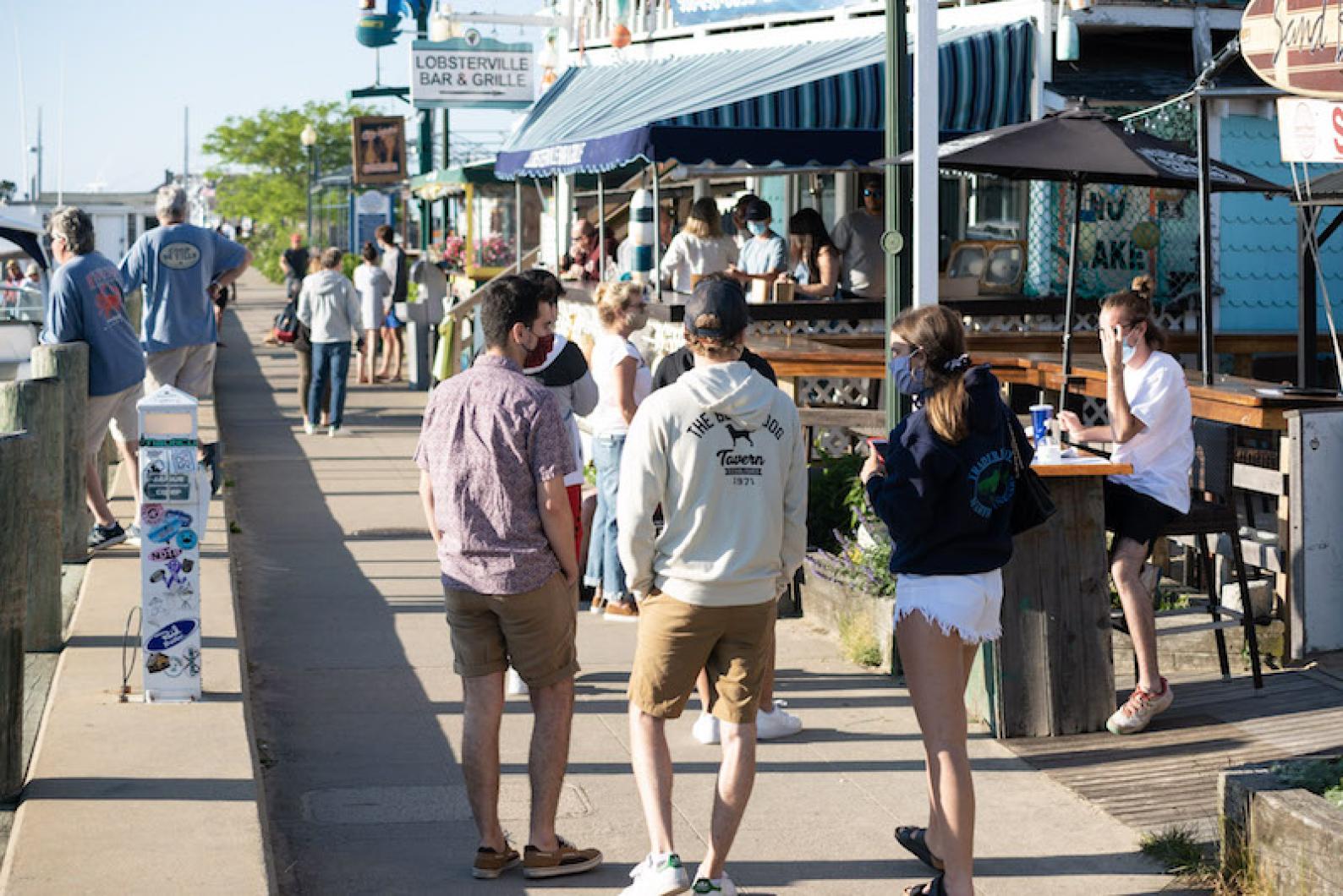The decision by the Trump administration this week to extend a freeze on issuing green cards and other temporary work visas has dealt another blow to Island business owners, who are already critically short staffed this summer.
Included in the ban are J-1 and H-2B visas — two programs which have become an integral part of the Vineyard summer workforce. The visas allow restaurants, retail stores, hotels and ice cream shops to hire hundreds of foreign nationals each spring. In 2018, 872 J-1 visas were issued on the Island for the summer, while hundreds more H-2B visas run through the shoulder seasons.
The visa ban began in late April and was set to expire Monday before it was extended through the end of the year.
“Under ordinary circumstances, properly administered temporary worker programs can provide benefits to the economy,” the White House said in a June 22 statement. “But under the extraordinary circumstances of the economic contraction resulting from the Covid-19 outbreak, certain nonimmigrant visa programs authorizing such employment pose an unusual threat to the employment of American workers.”
Vineyard business owners reacted with dismay to the federal order.
Many depend on the J-1 and H-2B workers, who in recent years have hailed mostly from Eastern Europe and the Caribbean. And they said filling job openings with American workers is not a viable option.
Doug Abdelnour, who owns Nancy’s Restaurant and Nomans in Oak Bluffs, said at Nancy’s alone he typically employs upwards of 40 visa workers each summer as part of a 100-person staff. This year he has only 15 returning employees; all are clocking substantial overtime hours. He said he has no dishwashers, food runners or prep cooks. On Wednesday, Mr. Abdelnour spoke to the Gazette while running food orders himself.
“I have never had such a hard time finding employees as this year,” he said. “The positions that J-1 and H-2B workers used to fill are not being filled by American workers at all.”
Cong. Bill Keating, whose Cape and Islands district office oversees the visa program, said foreign workers who were issued a visa before the first ban in April are still able to come to the United States. But the pandemic disrupted travel and caused bottlenecks in application processing at the foreign embassies, meaning the vast majority of visa workers will not arrive at all this summer.
“Who is getting hurt by this?” Mr. Keating said, speaking to the Gazette by phone Thursday. “The answer is local businesses and local people who work in those businesses . . . they are depending on people that won’t be coming.”
Some Island business owners said they had not received a single application from a J-1 or H-2B worker yet this season, while usually the applications begin to pour in after Memorial Day. And while unemployment is high, business owners say they are seeing fewer applications from local workers this year too, in part because of generous government benefits for people who are out of work.
“There are a lot of people doing better at home than they would be working at an ice cream shop,” said JB Blau, who owns five restaurants on the Island.
Mr. Blau said for now he has consolidated his operation to just one restaurant — Sharky’s in Edgartown. He said he usually employs a staff of about 150, about a third of them visa workers. At the moment he has a staff of 30.
And he said the dearth of foreign workers on Island this year only serves to highlight their importance.
“I think the Island is realizing that foreign workers are absolutely necessary to supplement summer business,” Mr. Blau said. “It is more evident now than ever that the local population cannot handle demands for the summer season.”







Comments (31)
Comments
Comment policy »